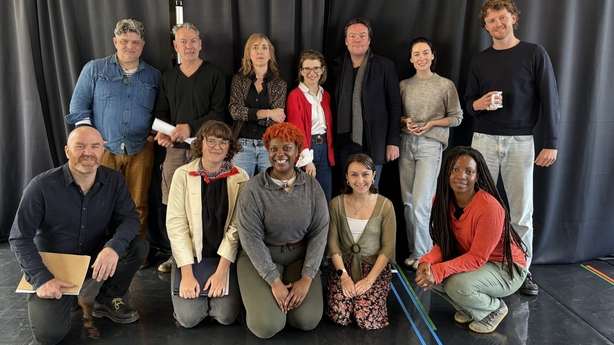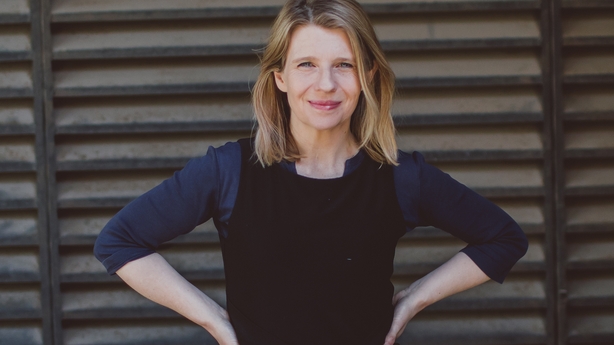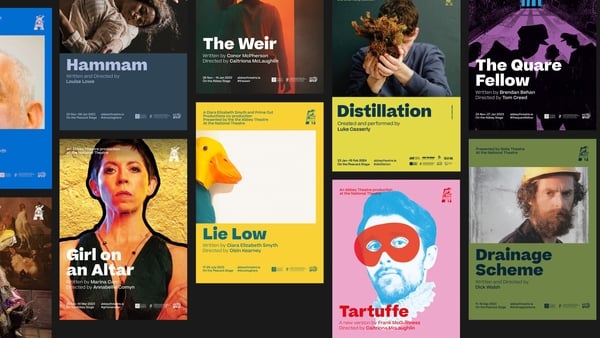Elizabeth Kuti is a writer and a professor at the University of Essex, where she currently teaches drama.
A revival of Elizabeth's award-winning play The Sugar Wife is the big summer presentation at the Abbey Theatre, Dublin, this June and July - she talks to RTÉ Arena above, and revisits The Sugar Wife below.
I started writing The Sugar Wife almost 25 years ago. The world was very different; I was very different. I had yet to experience giving birth; seeing a parent die; raising children; growing older. The world hadn't seen 9/11 or the Iraq war or the economic crash of the 'noughties or the covid pandemic or the killing of George Floyd.
The Sugar Wife came out of Rough Magic’s commission to write a second play for them, following The Whisperers in 1999, which was my completion of Frances Sheridan’s half-finished eighteenth-century comedy.
We need your consent to load this YouTube contentWe use YouTube to manage extra content that can set cookies on your device and collect data about your activity. Please review their details and accept them to load the content.Manage Preferences
As a non-Irish person who had at that point lived here in Ireland for the majority of my adult life, I wanted to write an Irish play with a story that felt like it hadn’t been told before. I knew I’d have to write about an Ireland no living person had seen or experienced first-hand. So it would probably have to involve some time-travel.
I guess it was over a cup of coffee in that I began musing on the sign which was very ubiquitous at that time: ‘Bewleys - Established 1840.’ I began to think about those decades of the mid-19th century for the Bewleys, as a Quaker family, dissident immigrants to Ireland, starting the ‘Oriental Teahouses’ that had played such a visible part in Dublin culture, public and private: their starring role in Joyce’s Ulysses, their place in my own life as a student and then actor and writer. I thought about the Famine years; about the importation of tea and coffee; about the reliance of European culture and diet on sugar, and on the growing of sugar cane; of the Quaker involvement in social reform and especially the abolitionist movement; and of the relationship between sugar and slavery.

the Abbey's revival of The Sugar Wife
And it all seemed to come together to form the kinds of paradoxes that you look for as a playwright – the tragedy of good intentions falling short; the complexities and horrors of the world bound into the smallest pleasures of our lives; secrets and lies; moral dilemmas; the conflict between idealism and pragmatism. I researched further and found that the famous activists and anti-slavery speakers of colour, Sarah Parker Remond and Frederick Douglas, had visited Dublin and given public speeches. Characters began forming in my mind that I thought could have an interesting life onstage in Irish theatre.
I'm not sure how The Sugar Wife has aged, but I’m eager to know what audiences think.
Plays are about people so this play also had to be about real, normal people and the everyday fabric of life: work, sex, money, dreams, and longing. But I was so sick of hearing from a certain kind of literary manager and critic that women playwrights are always so domestic and why can’t you write political plays? – and when I protested the gross inaccuracy of this comment, being told ‘Oh yes, we know women playwrights say they write the personal-as-political. But where is the political as political with a capital P?’

This was red-rag-to-a-bull stuff. Fine. You want political with a capital P? Coming up. Globalism, capitalism, imperialism, feminism, slavery... Enough of a capital P for politics for you?
I’m not sure how The Sugar Wife has aged but I’m eager to know what audiences think. There are things in it that make me blush, for sure, things I probably wouldn’t write now... but there’s still quite a lot that I feel fine to stand by, and to put my name to.
(Oh yes, and there’s the personal, too of course. Nothing happens and nobody exists without love and desire. There’s plenty of that in Sugar Wife, too.)
The Sugar Wife, directed by Annabelle Comyn, runs at the Abbey Theatre from June 13th – 20th July - find out more here.
